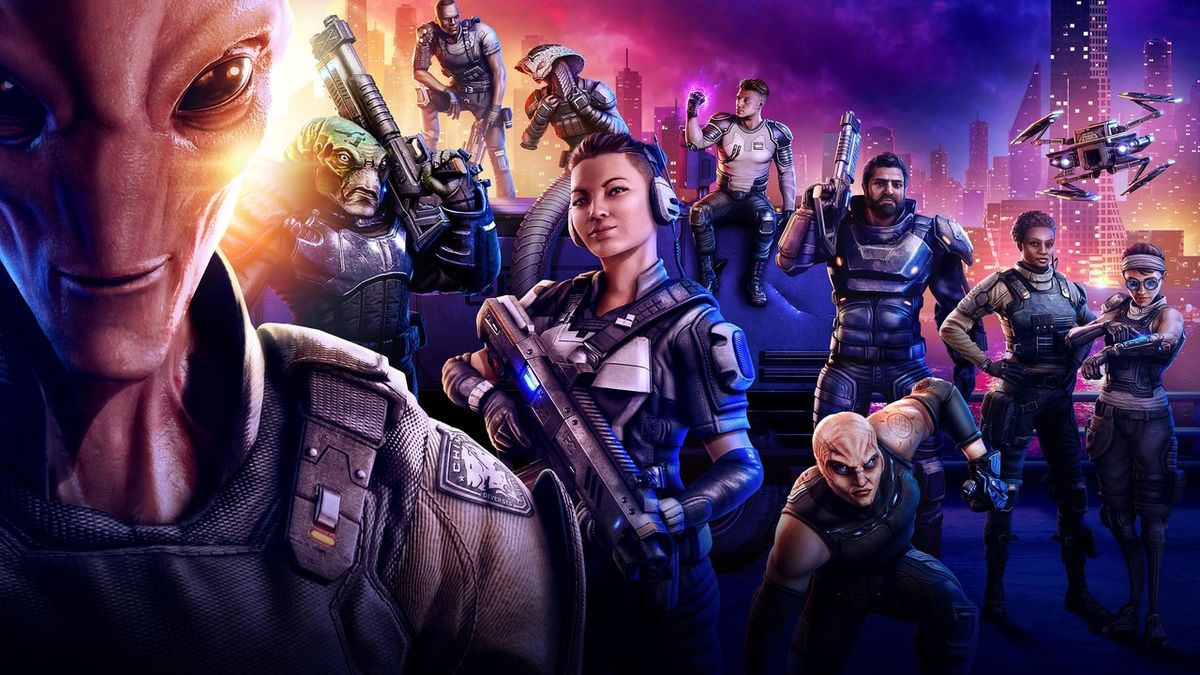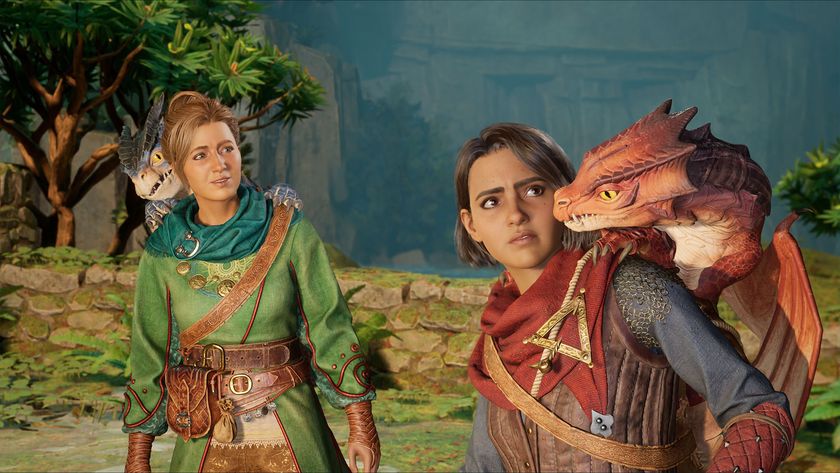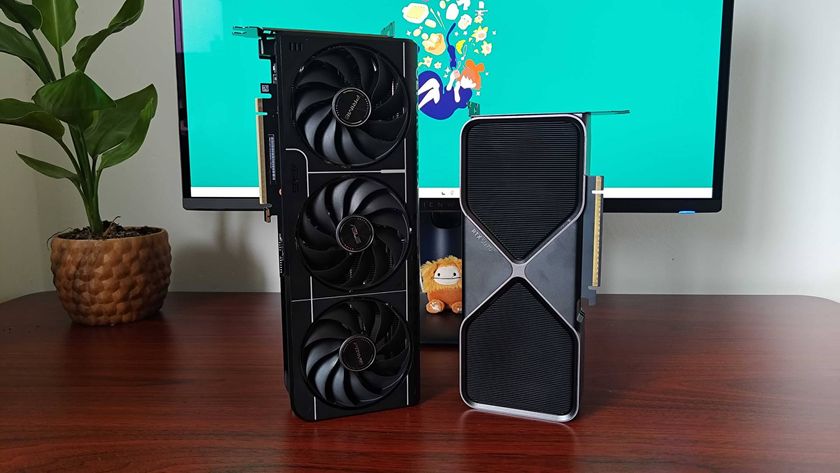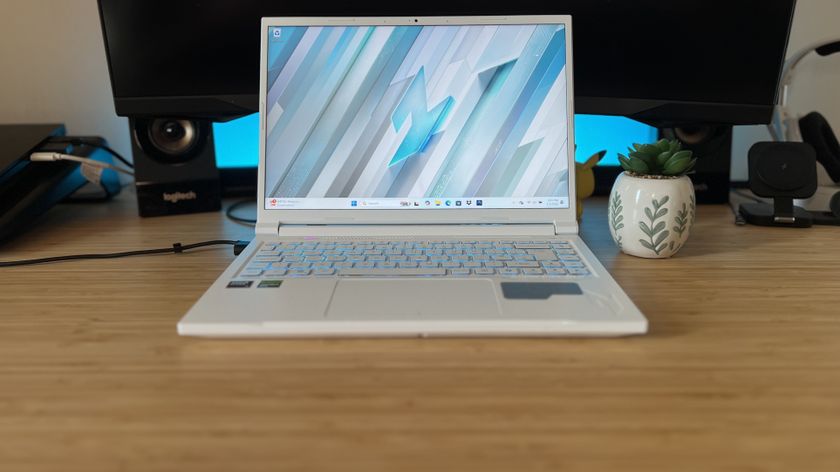12DOVE Verdict
Firaxis lets its hair down for a fun, ragtag twist on XCOM's proven recipe of tactics and tension.
Pros
- +
Excellent value for money
- +
Breezy story full of character
- +
Interesting spins on classic XCOM scenarios
Cons
- -
Absence of key features from previous games
- -
More unorthodox mechanics won't be to everyone's taste
Why you can trust 12DOVE
Developer Firaxis Games has pitched XCOM: Chimera Squad as neither a full-blown sequel or a paid expansion to 2016's excellent XCOM 2, instead describing this surprise new chapter in its acclaimed turn-based tactics series as a "standalone installment."
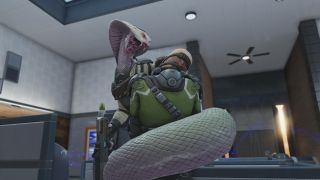
Release date: April 24, 2020
Platform: PC
Developer: Firaxis Games
Publisher: 2K Games
In reality, XCOM: Chimera Squad feels like a testbed for greater things to come, an experimental petri dish for Firaxis to prototype new ideas and concepts that could eventually make their way into the inevitable XCOM 3. Unfortunately, most of these new ideas do little to advance the tactics genre in ways that feel genuinely progressive, but that doesn't make Chimera Squad any less enjoyable as another generous slice from the ever delectable XCOM pie.
Set 10 years after the events of XCOM 2, your titular team of supersoldiers in XCOM: Chimera Squad are no longer a blank slate of customisable avatars, but distinct characters made up of humans, hybrids, and aliens, all of whom come with their own pre-rendered traits, specialisations, and personalities.
Your mission isn't to fend off an invasion or lead an underground resistance anymore, either, but to act as peacekeepers for City 31, a model metropolis for the uneasy post-war cohabitation between humankind and their former invaders. While there's plenty of heavy political subtext that can be drawn from Chimera Squad's story of former enemies living and fighting side by side, its 18 hour campaign belies XCOM's sombre tone for something more resemblant of Saturday Morning cartoon, complete with comic-book style cutscenes and a sprightly, joke-a-minute script.
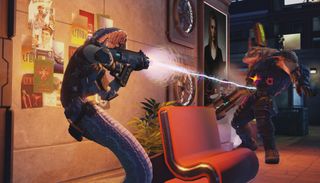
I'm of two minds about Firaxis' new approach to fixed storytelling over the more emergent narratives of Chimera Squad's predecessors. Though I appreciated the well-written banter that ping-ponged amongst my teammates both in and out of combat, their essential roles in the story make them immune to both permadeath and the player's ability to customise them beyond their basic skill trees and loadout sets. At this point, being able to create an entire squad based on the likeness of your friends or colleagues (only to see them go out in a blaze of glory during a particularly challenging firefight) is part of what makes XCOM, well… XCOM, and that sense of player investment and tension is sorely missed.
Alien nation
Instead, Chimera Squad interweaves the series' more punitive systems not with the fate of your squad, but City 31 itself. Fail to balance your peacekeeping resources, or prioritise the most vulnerable districts against the ticking clock of Chimera Squad's in-game calendar, and the entire city could descend into chaos. That structure, which allows you to tackle a number of traditional XCOM levels and smaller, quickfire encounters in your own order, ensured that both my successes and slip-ups still held permanent and tangible consequences, even if those consequences never felt quite as nail-biting as losing a handmade clone of my flatmate to a cocky stat gamble.
In better news, the addition of Alien and Hybrid units to your squad roster freshens up XCOM's core gameplay loop significantly, not least thanks to the supernatural power afforded by these newly recruited extra-terrestrial teammates. There are 11 agents to unlock and upgrade, each boasting unique powers and abilities that can radically shift the playing field in dramatic and unpredictable ways.

"An easy purchase to pass the time for those addicted to the thrill of the turn-based battlefront"
I was particularly fond of Torque, the Viper, capable of reshuffling the entire chessboard by pulling in enemies out of cover with her reptilian tongue or incapacitating them completely via her Bind ability. The aliens are undoubtedly the stars of the show, then, but even the human characters possess visually and mechanically satisfying abilities that feel like an upgrade from their XCOM 2 counterparts, each one tailored to their divergent roles on the battlefield.
Chimera Squad also throws in a number of more unconventional ideas into XCOM's turn-based rhythms but, other than speeding up and remixing the pace of play, their value to the overall experience feels negligible for the most part, and even polarising to those who adored the combat systems that were so beautifully perfected in XCOM 2.
There's a certain satisfaction to be had from getting the drop on foes at the start of each mission through the new breach mode, for instance, but its overused to the point of feeling more like a gimmicky crutch than an integral addition to the XCOM blueprint. Likewise, the shift to an interleaved turn system, which places units into a DnD-style queue based on initiative determined by the Breach system, narrows opportunities to play the long game with big picture team formation setups, instead focusing on more reactive, quickfire manoeuvres. Whether that's a good or bad thing ultimately depends on how you prefer your XCOM served; it's change for the sake of change, rather than an integral step forward for the tactics genre at larget.
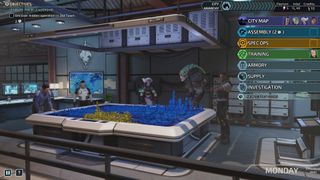
That said, Firaxis has implemented opportunities to manipulate the turn order through certain action skills, and units can even synchronise their abilities for devastating combo plays, which - when pulled off - makes for some of Chimera Squad's most cathartic in-game moments.
This, alongside the diversity of its characters, leaves a lot of potential for some really interesting squad composition meta, especially towards the end of the campaign, and I'm curious to see how the XCOM pros find the perfect balance for survival in the returning Ironman mode.
Divergent design decisions aside, Chimera Squad's campaign still presents hours of stimulating XCOM content, and at its discounted price point, the value for money here is genuinely impressive. But while the more ambitious spirit of creativity whirring beneath Chimera Squad's revised DNA is exciting, you can understand Firaxis' reluctance to give this instalment the eminence of full sequel status.
As a mockup for the franchise's future, Chimera Squad reveals more about XCOM's original strengths than its areas for potential evolution. But as an easy purchase to pass the time for those addicted to the thrill of the turn-based battlefront, I can't recommend it enough.
I'm GamesRadar's Features Writer, which makes me responsible for gracing the internet with as many of my words as possible, including reviews, previews, interviews, and more. Lucky internet!
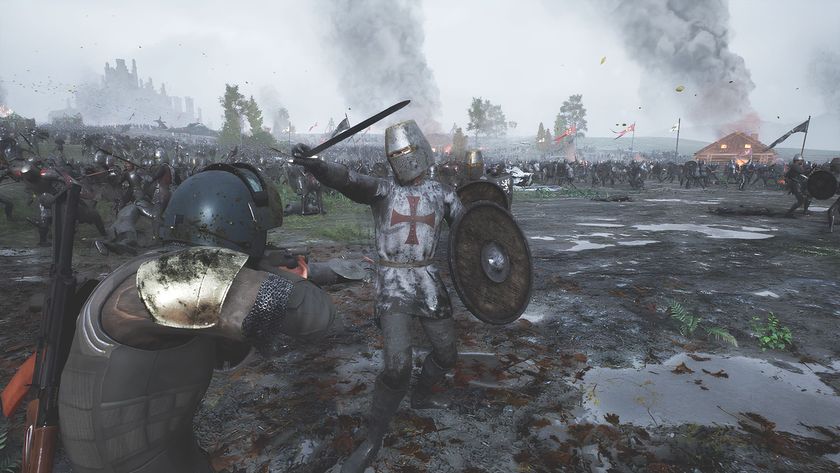
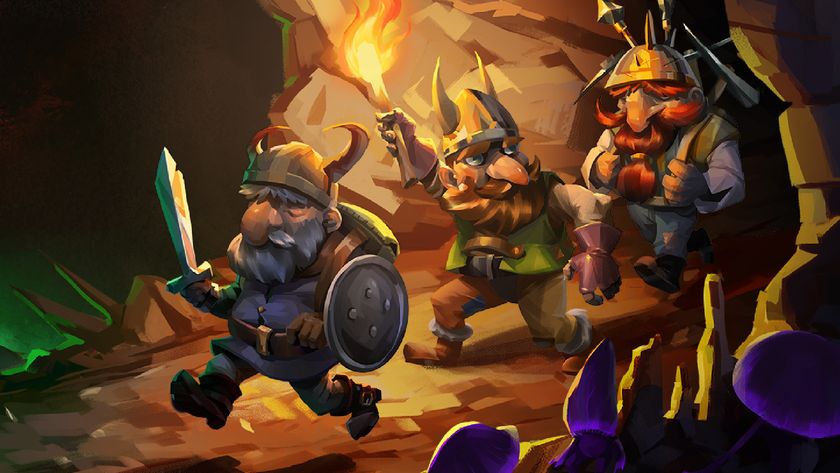
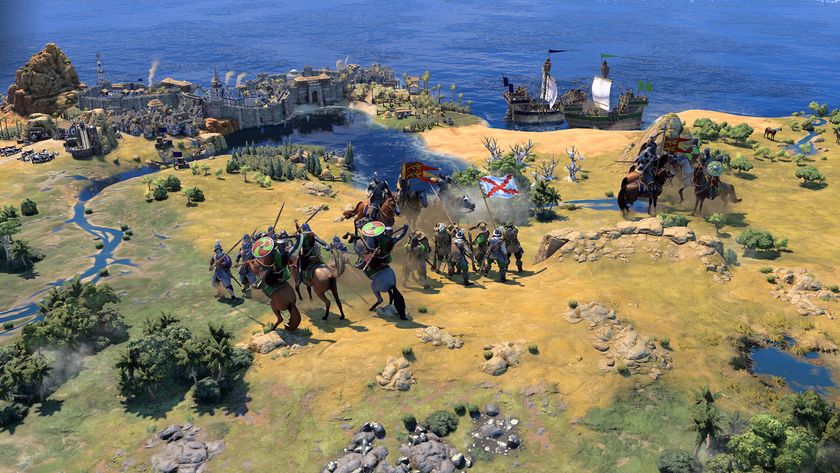
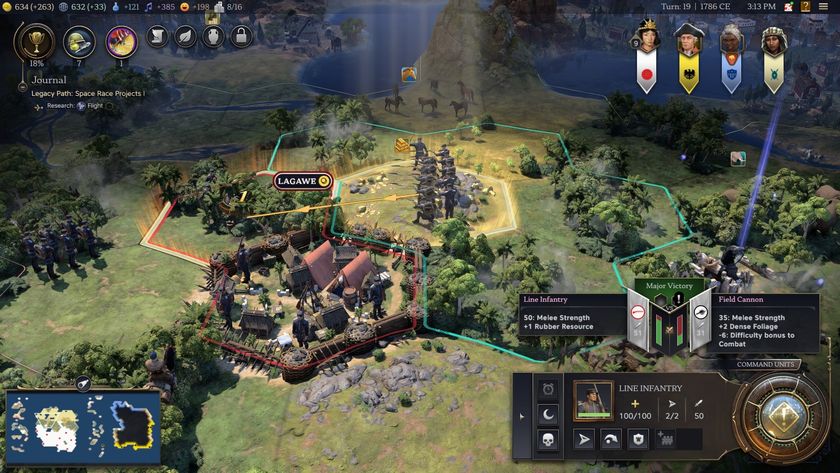
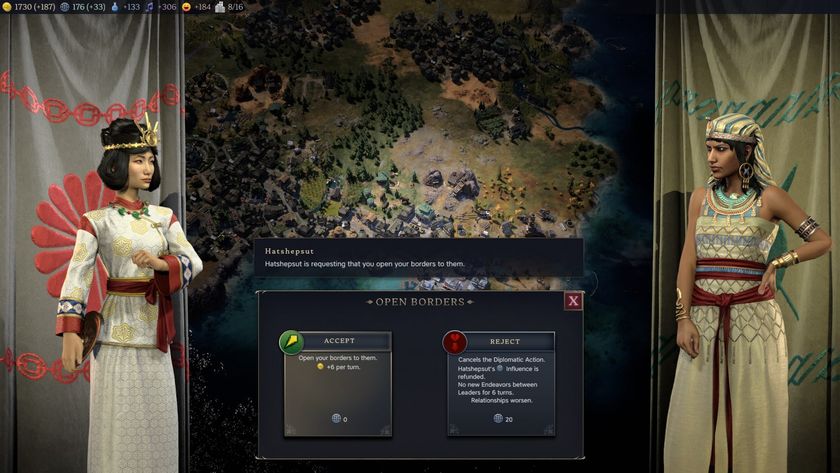
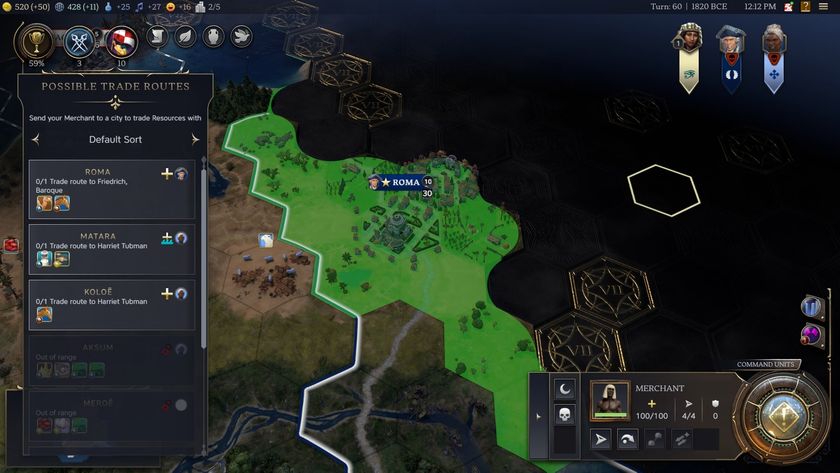
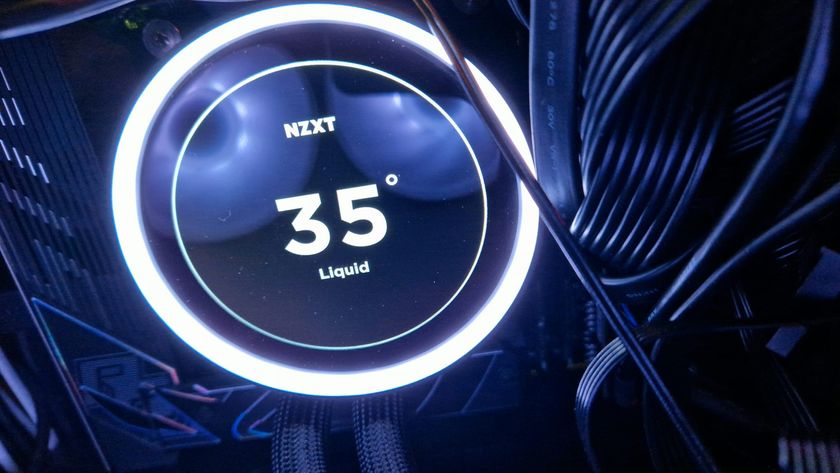
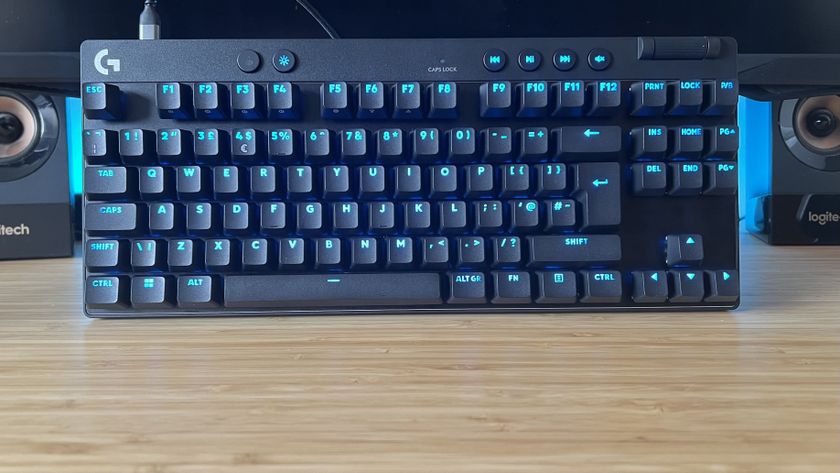

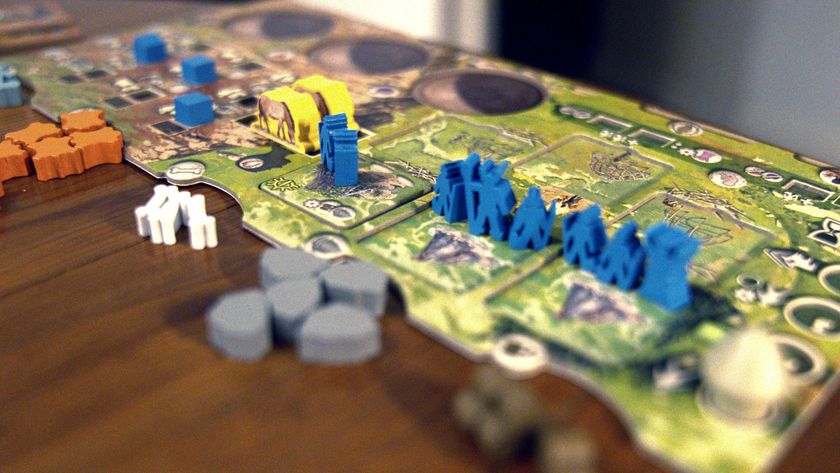
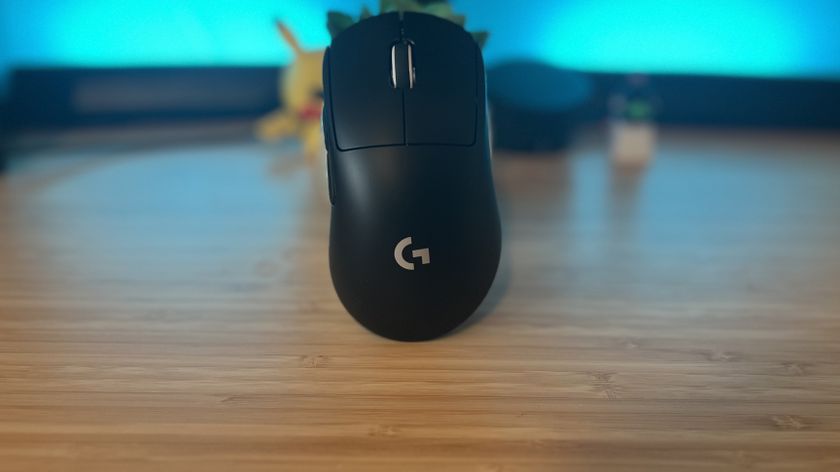


Balatro creator started "properly playing the game myself about a week before launch" and had "a pretty emotional moment" where he realized it's "actually fun"

Hideo Kojima reveals Death Stranding 2: On the Beach release date, and the Collector's Edition includes exactly what I predicted it would

Kingmakers is a strategy game about taking on medieval armies with a gun, but its devs thought the giant mech was too much
